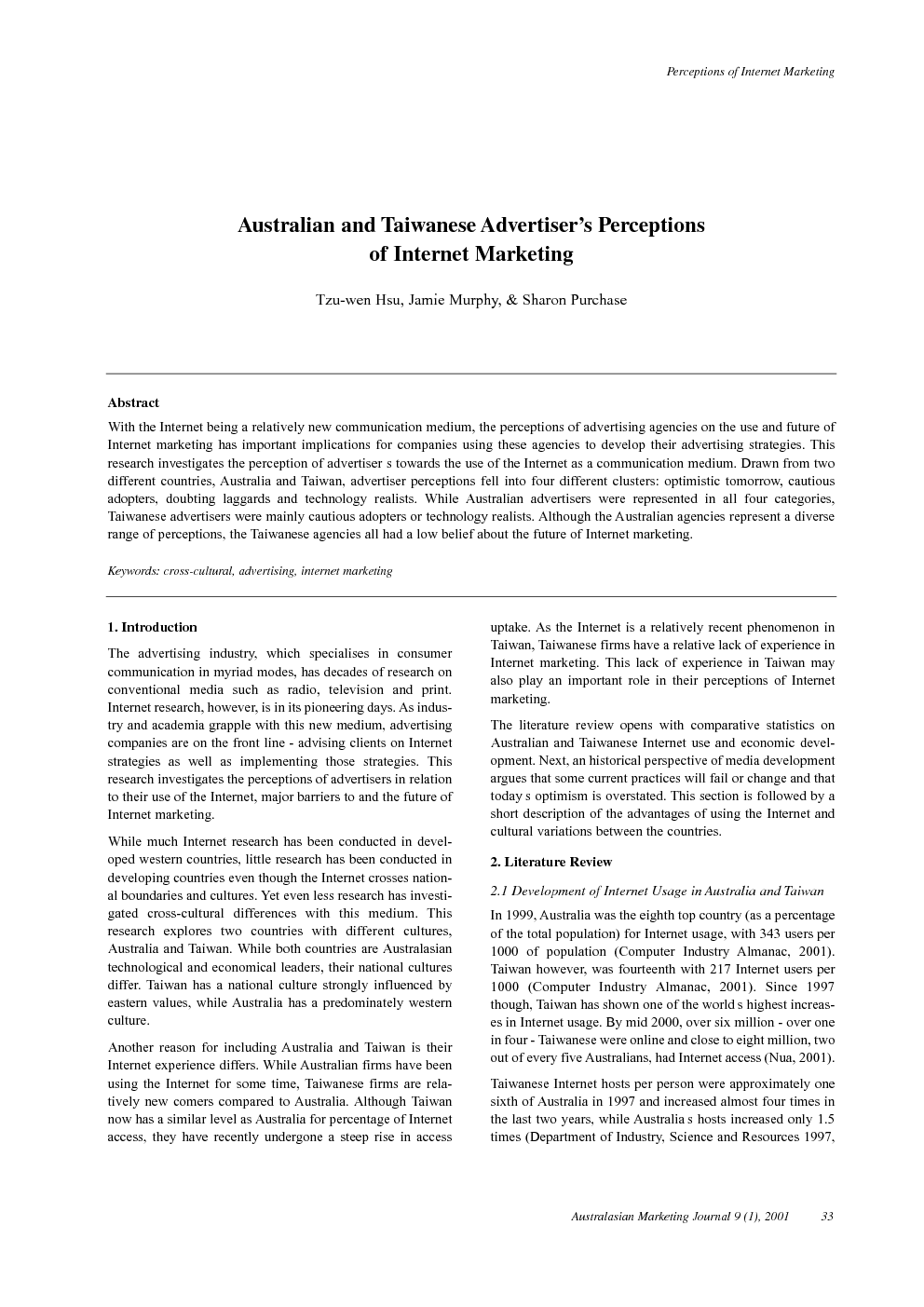ترجمه فارسی عنوان مقاله
درک تبلیغ کننده استرالیا و تایوان و بازاریابی اینترنتی
عنوان انگلیسی
Australian and Taiwanese Advertiser's Perceptions of Internet Marketing
| کد مقاله | سال انتشار | تعداد صفحات مقاله انگلیسی |
|---|---|---|
| 23604 | 2001 | 13 صفحه PDF |
منبع

Publisher : Elsevier - Science Direct (الزویر - ساینس دایرکت)
Journal : Australasian Marketing Journal (AMJ), Volume 9, Issue 1, 2001, Pages 33–45
ترجمه کلمات کلیدی
بین فرهنگی - تبلیغات - بازاریابی اینترنتی
کلمات کلیدی انگلیسی
cross-cultural,advertising,internet marketing

